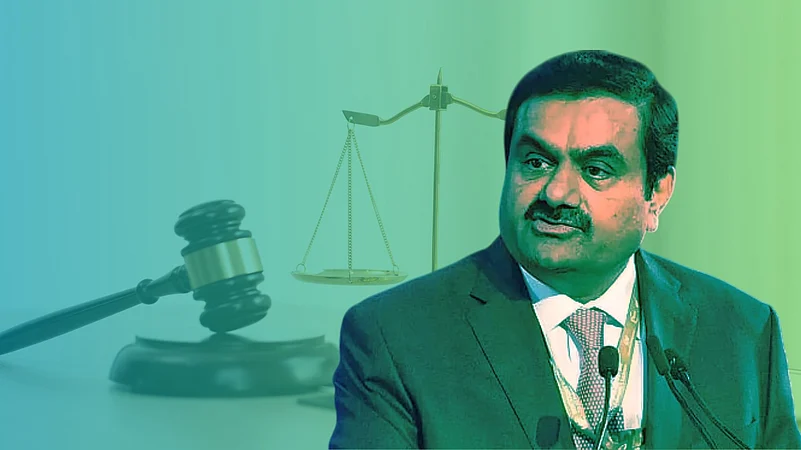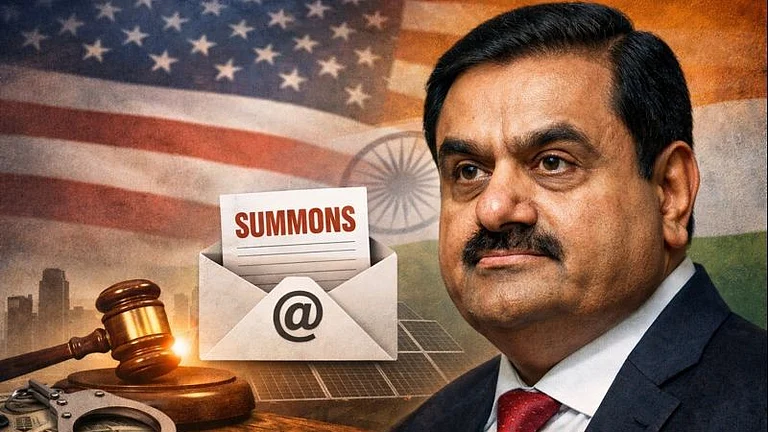Adani Stocks: Bribery, Arrest Warrant, Indictment, all these accusatory terms have triggered a massive pulldown in investor sentiment. This was quite evident on Thursday when major group companies like Adani Green, Adani Energy Solutions and Adani Power crashed by nearly 20 per cent on the bourses.
Long story short, US prosecutors have accused Gautam Adani, his nephew Sagar Adani and 6 others of paying Rs 2,029 crore ($265 million) in bribes to Indian officials for "lucrative contracts". And while some see this play as a deja vu of the Hindenburg row, others believe that the company's way out might be difficult this time as it's the FBI sitting on the other side of the table.

But as for now, the controversial attention seems to be steadily shifting towards the regulatory crowns. Be it Exchanges or the market watchdog, Sebi (Securities and Exchange Board of India)— who even faced Hindenburg's accusations earlier this year— the role of regulatory custodians has come under the spotlight.
Lapses in Adani's regulatory play?
So, first thing first, according to the original statement, the accusations are yet to be proved in the court, but as per US authorities the Adani group did make some regulatory lapses. For instance, any listed company must disclose any information deemed 'material' to the domestic market watchdog, as per Regulation 30 of SEBI's LODR (Listing obligations and disclosure requirements.
This information is also supposed to be shared with both the bourses, the National Stock Exchange and the Bombay Stock Exchange, within a specified time period.
However, when the Adani conglomerate was experiencing some serious events by US authorities, the group failed to inform the custodians about the same.
Just last year, Sagar Adani was served a search warrant by FBI agents in the US, who also seized electronic devices from him as part of the investigation.
At the same time, he was issued a grand jury subpoena. Now, this warrant detailed several alleged violations, including securities fraud, wired fraud and one under the Foreign Corrupt Practices act as well. But what was worse here is that not only did the company fail to disclose information about these events to domestic authorities, but also made a publicly false statement about this investigation.
"The letters falsely stated, among other things, that the Indian Energy Company has not received any notice from the Department of Justice of US in respect of the allegation referred to in the (a news article) and that the Indian Energy Company was 'aware of an investigation' into potential violations of the US anti-corruption laws by a "third party," the official documents stated.
Adani's reply back
While the conglomerate has already issued a public statement, denying all the accusations made by the US authorities, domestic investor sentiment has started to dwindle a bit. The flagship company, Adani Enterprises, witnessed a decline of more than 24 per cent on the bourses.
Adani Green Energy, which is also the group's biggest bet considering the larger renewable energy push in the nation, witnessed the worst brunt as the shares of the company experienced a similar decline for the second day straight. On Friday, Adani Green Energy's share price declined by nearly 8 per cent on the NSE. While other group companies did witness a minor uptick. But only a minor.
Plus, it's not just the financial authorities where all the investor eyes are now falling but other segment custodians as well.
Andhra Pradesh's current Finance Minister Payyavula Keshav was quite vocal about the controversial deal between the state government and Adani Green when TDP was not in power. Besides filing a regulatory objection with the state's Central Electricity Regulatory Commission, Keshav had also submitted a PIL in the High Court, which remains pending to this day.
As for now, the regulatory play remains to be seen.
































